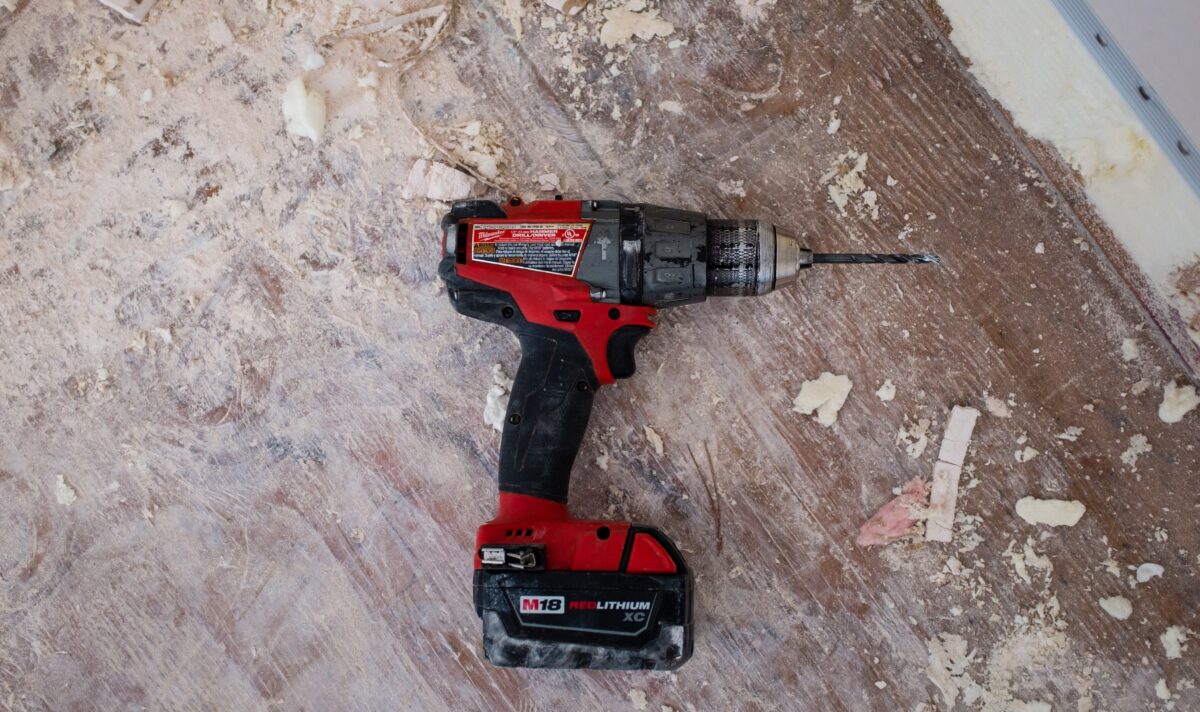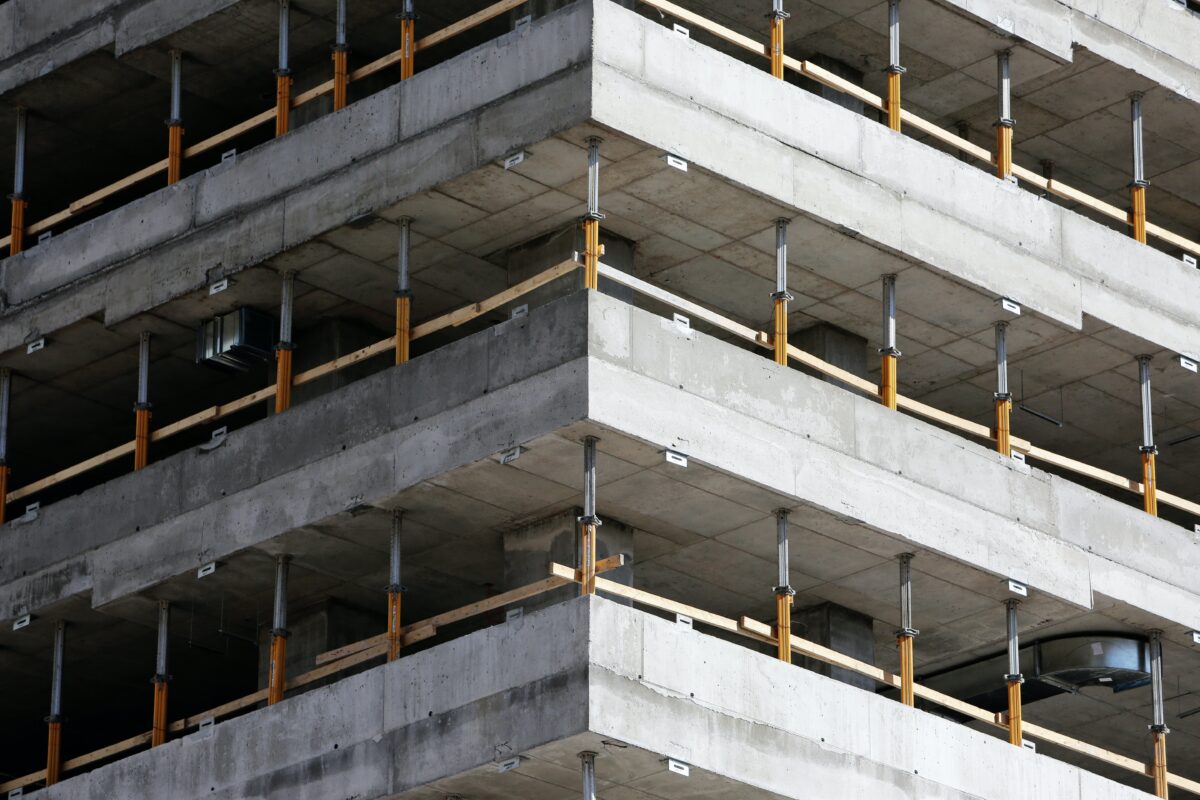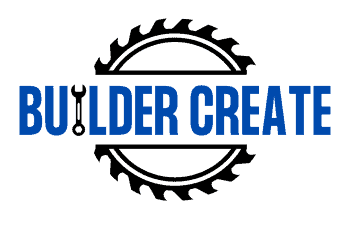As a contractor with years of experience, I know firsthand how the wrong bit can damage walls or floors, costing you time and money.
Whether doing a DIY project or a contractor job, this article will explain the best bits for concrete drilling so you can work efficiently without problems. I will also share tips from my years on the job so you can drill concrete with confidence.
Contents
What Drill Bit to Use for Concrete
Carbide-tipped bits are the best option for frequent drilling into poured concrete foundations and driveways. Diamond-tipped ones are for heavy-duty tasks and professional concrete drilling, while high-speed steel ones are for drilling into sidewalks and garages. Lastly, masonry/slotted drive shaft ones are excellent for medium-density cinder blocks or bricks.
Investing in the right drill bit to use for working on concrete can guarantee efficiency and safety. Understanding their differences can help you choose a bit tailored to your specific needs.

Choosing a Concrete Drill Bit Type
When embarking on any concrete drilling project, the first step is selecting the correct type of bit. This depends on the hardness of the concrete you will be working with. Here are some of the most common concrete bit types:
- Carbide-tipped: Carbide bits are extremely hard and designed for drilling into very dense concrete. They have a long lifespan and can drill quickly through reinforced ones. Just be cautious of cracking or chipping.
- Diamond-tipped: Diamond is the ultimate concrete boring material. These versatile, durable bits drill fast through any concrete hardness. Diamond bits are a go-to for heavy-duty jobs.
- High-speed steel: If you only occasionally drill concrete, affordable high-speed steel bits perform well in low-to-medium density ones. Their lifespan is shorter than carbide or diamond.
- Masonry/SDS: Designed for hammer drills, masonry bits drill medium hardness concrete. It also has the right drill bit size for a ring doorbell. Meanwhile, slotted drive shaft bits maximize speed and efficiency compared to standard masonry bits.
The characteristics and intended uses differ quite a bit between the various concrete bit types. Carbide and diamond are ideal for frequent drilling, while high-speed steel works for basic DIY home improvement jobs.
Concrete Drilling Technique
While selecting the right bit is crucial for concrete drilling, paying attention to the drilling technique is equally important. The concrete plays a significant role in achieving precise and efficient results while maintaining the longevity of both the bit and the drilling equipment.
Proper Alignment and Marking
Before starting the drilling process, ensuring accurate alignment and marking of the desired hole location is essential.
- Using a measuring tape, level, and pencil, mark the drilling spot on the concrete surface.
- Double-check the alignment to avoid errors or deviations, which can lead to imprecise holes.
Pilot Hole Drilling
When drilling pilot holes into exceptionally hard concrete, I find using carbide-tipped masonry a bit better. A pilot hole serves as a guide for the larger bit, allowing for better control and reduced chances of the bit wandering off course.

- Use a smaller-sized bit to create the pilot hole. Opt for 1/4-inch or 3/8-inch diameter bits for most applications.
- Pick a bit long enough to reach your desired depth. The standard length is around 6-8 inches.
Gradual Drilling Progression
To ensure efficiency, I drill into concrete at a slower speed and gradually raise it as the bit advances. For this technique, the best type of bit is a diamond-tipped one, considering factors such as the size and quality of the bit and whether it is designed for wet or dry drilling.
Check the specific type of concrete boring into, too. The gradual drilling progression technique helps prevent overheating and excessive wear on the bit.
Water Cooling
A diamond-tipped made for wet drilling is the ideal kind of bit when drilling into the concrete using the water-cooling process. These drill bits are mainly designed to function with water cooling to increase drill bit longevity, reduce heat on drill bits when it gets hot, and improve drilling efficiency.
Related Questions
Can I Use a Metal Drill Bit for Concrete?
It is not recommended to use a metal drill bit for concrete. They may be able to penetrate concrete partially, yet they are not intended for this use, and they may not yield adequate results. Concrete is a hard material that has to be effectively drilled using a specific bit.
Can I Use a Non-hammer Drill for Concrete?
Yes, you can use a non-hammer drill for concrete, yet you will likely encounter more resistance and slower progress than a hammer drill. The absence of the hammering action means that it relies solely on the rotational force to penetrate the concrete, which can be challenging.
Should I Use Water When Drilling Concrete?
Yes, using water when drilling into concrete can be beneficial. It serves two main purposes when drilling into concrete: it acts as a lubricant between the bit and the concrete and helps maintain a lower temperature during the drilling process.
Conclusion
Choosing the proper bit for concrete is important for getting precise and effective outcomes in your drilling efforts. You can achieve successful concrete boring by comprehending the many kinds of drill bits that are offered, taking the project needs into account, and using the appropriate procedures.

